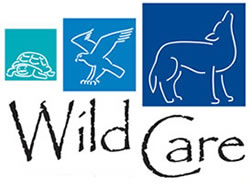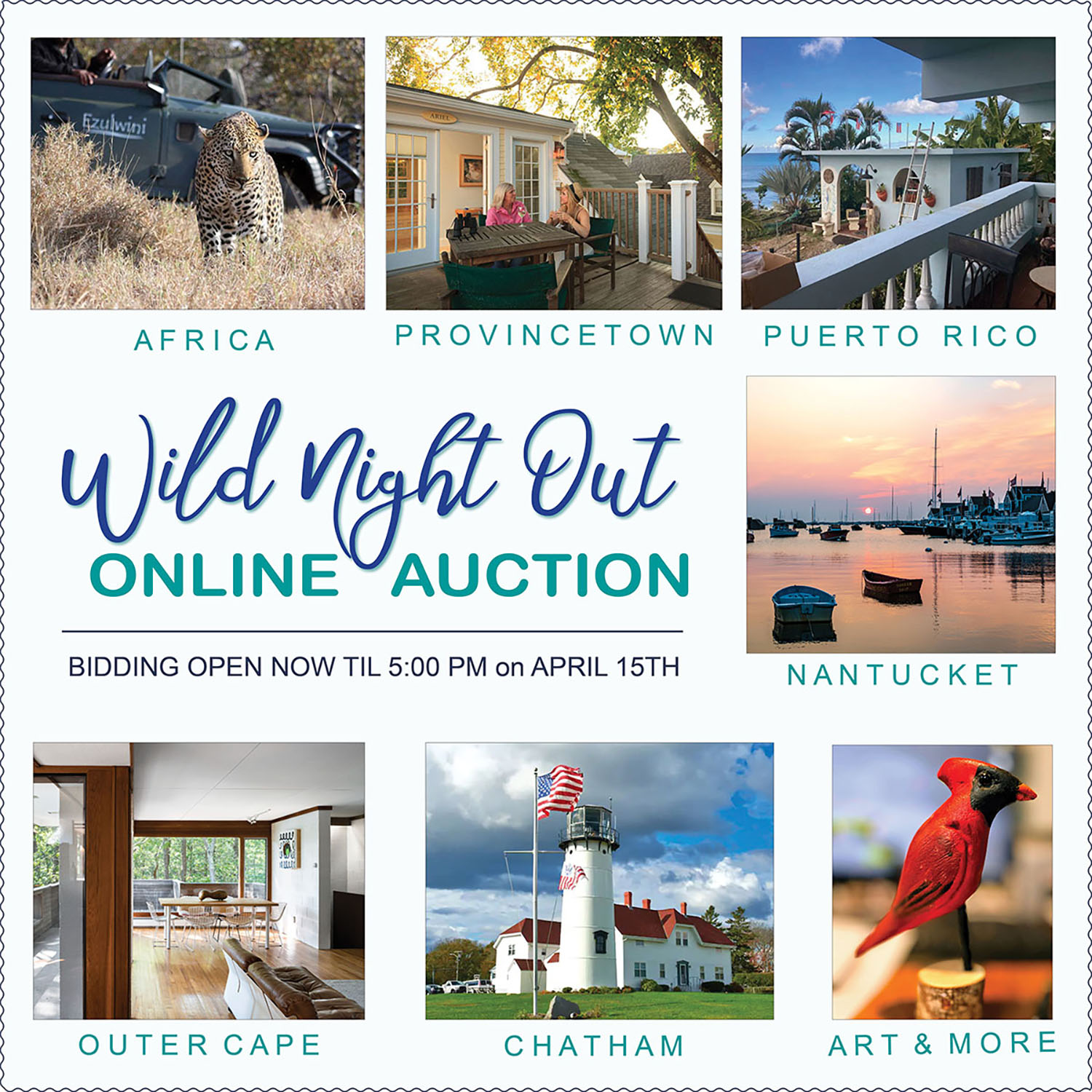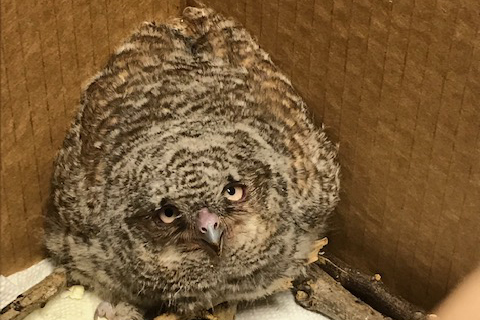
Thanks to Many Caring People, an Owl is Back in the Wild
By Jennifer Taylor, Animal Care Coordinator
Thanks to many caring people, an owl has returned to the wild in Eastham. A tree company employee called to tell us they felled a tree and found a baby owl. They were about to put the branch (with the owl in it), into the wood chipper and fortunately, they noticed it. I called our rescue volunteer, Bill Redihan, to assess the situation. It is unusual to only find one baby in an owl nest, so Bill and the tree workers searched the log and the area and found no others. He brought the nestling owl to Wild Care. The poor owl was traumatized by all that had happened, there were no wounds, but we wanted to observe it for a couple of days to make sure it was OK.
Screech owls never seem to warm up to people. This is good for them, and good for us! They are adorable little balls of fluff, and if they DID want us to nurture them, it would take all the rehabber willpower in the world for us to not fall in love with them.
All was well with the owlet. It was eating and pooping, and it was time to attempt a reunion with its parents. We hoped they were not injured by the tree work and would come to their baby. I drove to the property and the owner was fine with whatever we needed to do. A quarter acre of trees had been cleared, however woods remained 20 feet from where the owlet’s nest tree had been located. I set up a nest box in a nearby tree with the owl, and pointed a camera on it. I crossed my fingers and hoped the parents would hear their baby and come to it. I retrieved the camera in the morning.
The footage of the evening was heartbreaking. The camera was motion activated so every time the little owl poked its head out of the hole looking and calling for its parents, there was no response. This went on all night. So sad. I went back for the nest box, the owl and had to plan another strategy.
After two more days at Wild Care the owlet had fledged. It had become a “Brancher”. I spoke to Norm Smith at the Blue Hills Trailside Museum in Milton, who routinely “hacks” baby raptors into foster nests for us. I was expecting to send the owl to him as our potential foster nests had already fledged. Instead, he informed me that Eastern Screech Owls are “community feeders” and that parents will feed any baby in their territory as though they were their own. Well, that was amazing news!
The very next day my co-worker, Kerry Reid, happened to show me pictures of a screech owl family in her neighbor’s yard from the night before! This would work out perfectly.
We released the baby owl into this new family, and it took a village! This little owl is back in the wild with the help of the tree worker who found the owl, Bill the volunteer who brought the bird to Wild Care, the property owner who let us try to reunite the owl family, a video camera that Friends of Cape Wildlife had given us, advice from Norm Smith who knows everything about raptors, Kerry who always tells us of every BIRD she hears in Eastham, and her wonderful, excited neighbors, the Labranches, who saw screech owls in real life for the first time in their backyard. Rob Labranch then climbed a ladder in the dark to deliver the baby to its foster family.
Thank you to everyone who helped to make this re-nesting a success!
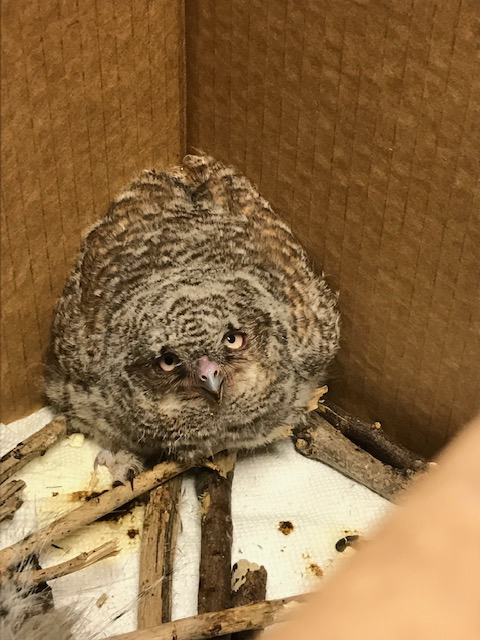
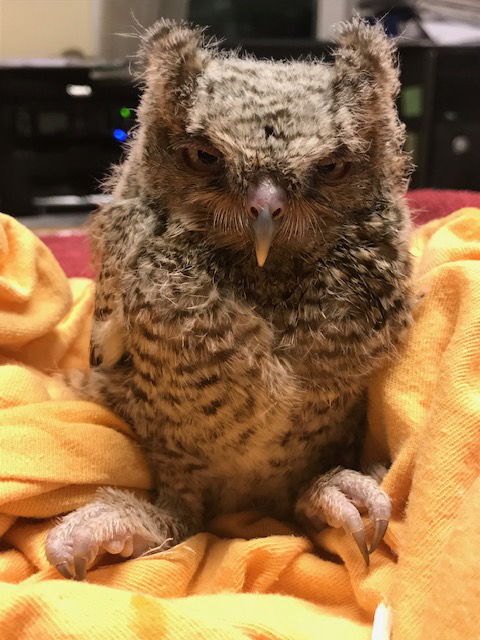
Wild Night Out Online Auction
READY, SET, BID… We are so excited to announce that our Wild Night Out Online Auction is now live!
READ ALL NEWS
CALENDAR OF EVENTS
04 April, 2024
Wild Night Out Online Auction
EVENT DETAILS
05 April, 2024
Wild Night Out
EVENT DETAILS
28 February, 2024
Wildlife Winter/Spring Talk Series
EVENT DETAILS

DID YOU KNOW??
Wild Care has a state-of-the-art seabird therapy pool, which allows seabirds and waterfowl to exercise on running water. This will help our bird friends recover more quickly so they can get back to their watery habitats!
